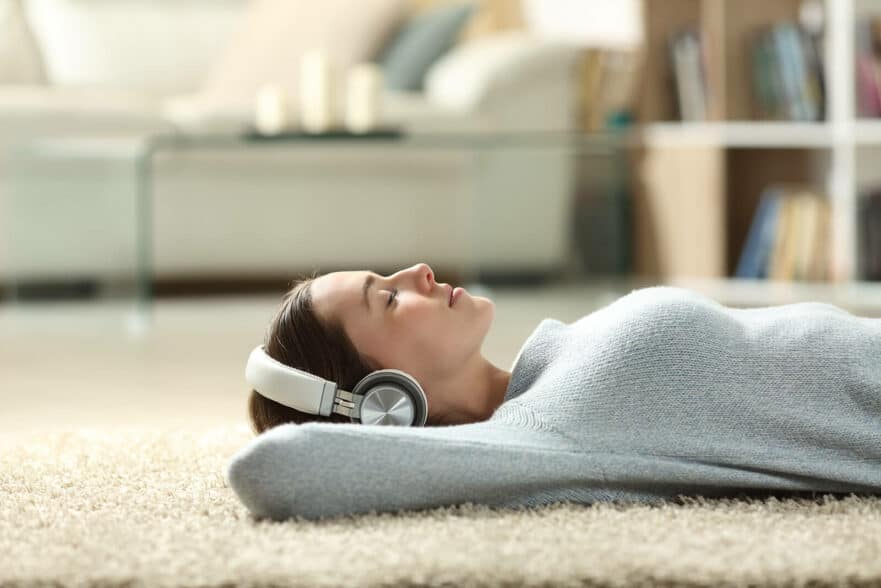- The Harm of Smoking to the Ears - April 9, 2025
- The Importance of Exercise for Hearing Health - March 11, 2025
- Movie Theaters and Hearing Aids - February 13, 2025
We are exposed to various sounds throughout the day. From alarm clocks, to listening to music, commuting, talking on the phone, and traffic – sound is part of everyday life. But did you know that there are everyday activities that could harm your hearing? One time or regular exposure to loud noise can irreparably damage hearing health, causing noise induced hearing loss. Impacting over 48 million people, hearing loss is the third most pervasive health issue that people live with today. Loud noise exposure is a common cause of hearing loss. This type of hearing loss is totally preventable so being aware of this risk and learning about safety measures can significantly protect your hearing health.
How can loud noise impact hearing health?
Loud noise is a common cause of hearing loss. Noise induced hearing loss occurs when sensory cells in the inner ear have been damaged. There are thousands of these cells in the inner ear which play an important role in how sound is processed. Sensory cells receive incoming sound waves and convert them into electrical signals. These signals get sent to the brain where they are further processed, including assigned meaning to. Loud noise can desensitize sensory cells, impairing them from processing soundwaves effectively. This results in the brain receiving less auditory information, causing hearing loss.
According to experts, noise that exceeds 85dB (decibels) is considered hazardous for hearing health. This is equivalent to busy city traffic, a restaurant during peak hours, and a hair dryer. There are everyday activities that we engage in that expose us to noise near and above 85dB. Being aware of these noise levels is important so that you can mitigate the impact that they can have on your hearing health.
What are everyday activities that could harm hearing?
There are numerous activities you likely engage in regularly that expose you to higher noise levels. Examples of everyday activities that could harm your hearing include:
- Household appliances: various household appliances produce noise near or above 85dB. A few examples include:
- blenders, food processors – up to 100dB
- power tools: drills, chainsaw etc. – up to 110dB
- lawn mower, leaf blower, vacuum cleaner, hair dryer: up to 90dB
- Social activities: another common source of daily exposure to loud noise is social activities and social settings which tend to be noisy:
- parties, loud restaurants, bars: 85-90dB
- going to a game in a sports arena, stadium concerts: up to 110dB
- Headphones/earbuds: earbuds have become an essential item that people use to conveniently listen to audio. From podcasts, to music, and talking on the phone; it is common to use earbuds to easily listen to audio. But depending on the device they are connected to, noise levels can reach up to 100dB on the highest volume setting.
Consistent exposure to these hazardous noise levels can take a toll on your hearing. It is important to prioritize your hearing health by practicing effective safety measures.
How can I protect my hearing health?
Noise induced hearing loss is completely preventable. Implementing the following strategies can significantly protect your hearing health:
- Wear hearing protection: items like headphones, earbuds, and earmuffs offer the ears a protective barrier. This reduces the amount of loud noise you absorb. Be sure to carry hearing protection so you can easily protect your ears when moving through noisier settings.
- Lower volume: a simple way to reduce your exposure to loud noise is to maintain lower volume settings. Be sure to lower the volume on electronic devices like the TV, your phone, speaker etc. The 50-60% rule is a good one to follow which describes having your devices be on 50% of their full volume capacity.
- Reduce exposure: additional ways you can reduce your exposure to loud noise include: taking listening breaks throughout the day, avoiding noisy environments, choosing quieter spaces, taking alternate routes to avoid traffic and construction sites etc.
- Test hearing regularly: it is important to have your hearing evaluated regularly. Integrating a hearing test in annual health check-ins is a great way to monitor your hearing health and to address any changes you may experience over time.
Practicing these safety measures can prevent noise induced hearing loss. Contact us today to schedule an appointment for a hearing consultation!

